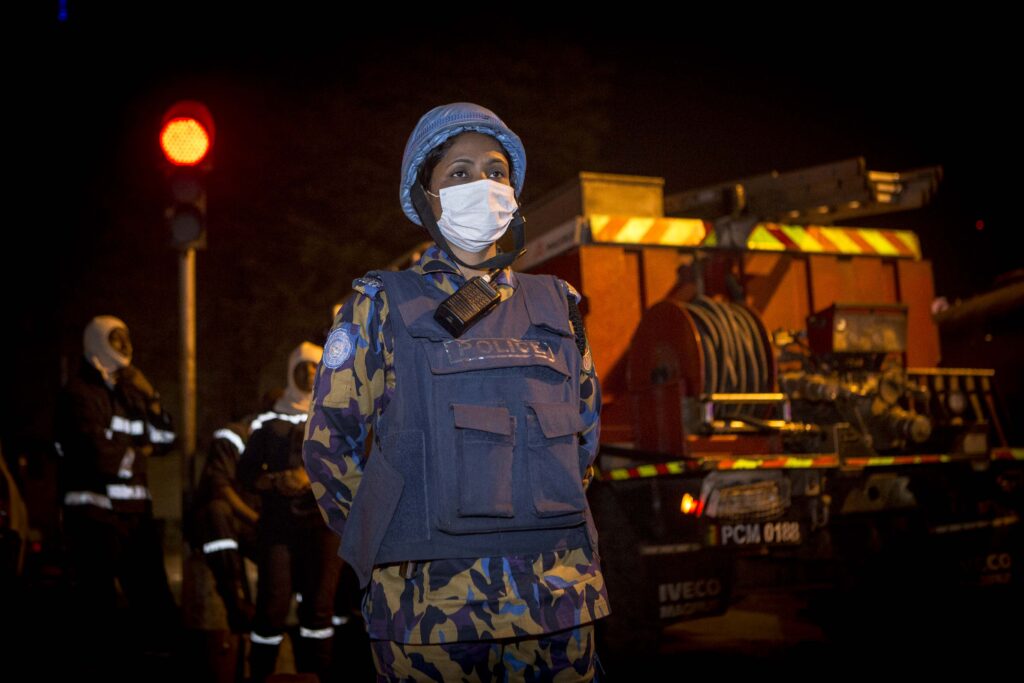“To warring parties, I say: …Silence the guns; stop the artillery; end the airstrikes”
– Secretary General’s Appeal for Global Ceasefire, 23 March 2020.
Over 170 UN Member States, Observer States and observers1 support the United Nations Secretary-General’s appeal for a global ceasefire during the COVID-19 pandemic. On 1 July, the Security Council finally added its voice to that call, after more than three months of negotiations. In addition to demanding an immediate cessation of hostilities, resolution 2532 also calls for a 90-day humanitarian pause.
Despite the Council’s weak performance, conflict parties may be more receptive to this call. In contrast with the “all or nothing” global ceasefire, some of the difficulties of which have been recognized by the Secretary-General, a humanitarian pause provides parties with the option of a temporary and geographically-limited halt in fighting to support a concrete, urgent humanitarian need. As such it may be a more realistic starting point.
As the focus shifts to concrete actions, we reflect on how arms control matters and can support a humanitarian pause or ceasefire.
Humanitarian and arms control experts have already chronicled how arms kill, often in an indiscriminate manner, and how the COVID-19 pandemic represents a new source of potential harm to civilians in conflict zones. Among the concrete arms control measures that can be taken during the humanitarian pause to save lives, protect vulnerable and affected populations, reduce risks of armed violence and build confidence between the conflict parties, three stand out.
First, to halt the destabilizing supply of arms into conflict zones. This means:
- the full and complete adherence by Member States to existing Security Council-mandated arms embargo regimes;
- a thorough monitoring and reporting of arms embargo violations by mandated UN entities and, where violations are found to occur, for the Security Council to hold parties accountable; and
- for Member States to exercise responsible arms transfers and mitigate the risk of diversion to unauthorized recipients, including by conducting comprehensive export and diversion risk assessments at pre-transfer stage and, where substantial risks are identified, to restrict transfers (including re-export) of arms and related material.
Second, conflict parties must adhere to International Humanitarian Law (IHL) and refrain from certain types of attacks as well as the use of specific weapons categories that may cause grave human suffering and escalation of violence. This means all parties should:
- strictly refrain from indiscriminate and disproportionate attacks in adherence with IHL;
- disengage or otherwise not use specific weapon categories and calibres that cause unnecessary or unjustifiable suffering to combatants or to affect civilians indiscriminately, such as certain types of heavy explosive weapons with wide-area effects or improvised explosive devices (IEDs), especially in populated or urban areas; and
- (re-)affirm commitments to refrain from laying new landmines and other explosive devices.
Third, to utilize the opportunity provided by the humanitarian pause to further reduce risks to civilian populations from weapons and explosive hazards. This could include:
- Member States providing requesting parties with assistance to clear and dispose of mines, explosive remnants of war and IEDs as well as to secure at-risk stockpiles;
- a demand by the Security Council that conflict parties provide safe and secure access to humanitarian disarmament actors to carry out clearance, disposal and related explosive risk education and awareness-raising activities; and
- where feasible, the establishment, of ‘weapon free zones’ to reduce arms related risks to communities affected by conflict and COVID-19.
These actions are feasible and desirable arms control actions that Member States and conflict parties can take to save lives during the humanitarian pause. These are also measures that relevant United Nations mechanisms—from peace operations, special political missions to UN Country Teams—could be empowered by the Security Council to monitor and report on, in line with the invitation by the Council for the UN Secretary-General to provide updates on actions taken by the UN in this period. These undertakings need not be reciprocal, although there should be equality and balance so that the measures taken by one party are matched in some way by those taken by the other2.
The agreement on, and implementation of, such concrete arms control actions—not words or promises—will be greater than the impact of each individual measure. Reducing weapons related risks will not only bolster the humanitarian pause, it can provide impetus to go beyond a temporary de-escalation in violence and open up the “precious windows for diplomacy” that the Secretary-General referred to in his original appeal.
Simon Yazgi is a researcher in the Conventional Arms Programme at UNIDIR, where he leads research into Conventional Arms Control in Conflict Prevention and Management.
Hardy Giezendanner is a Conventional Arms Programme (CAP) Researcher at UNIDIR.
